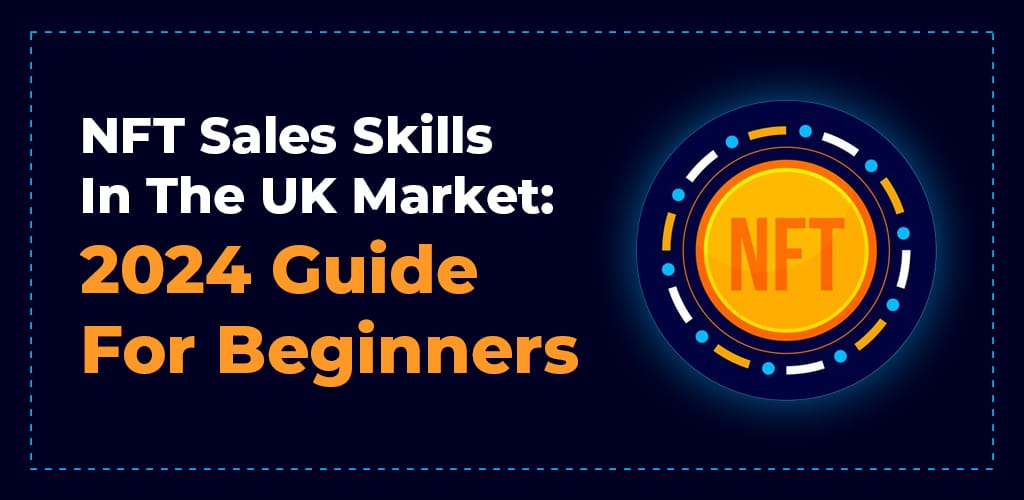NFT Sales Skills In The UK Market: 2024 Guide For Beginners
Introduction:
You might remember our recent piece from our complete guide, where we went into great detail on the process of building an NFT. It takes more than simply knowledge of the creation process to successfully navigate the large universe of NFTs. The next crucial step is to become an expert in selling these digital assets once you’ve honed your creative process. Being an expert at creating and marketing NFTs will greatly increase your visibility and success in this dynamic field.
From the cutting-edge world of digital assets, greetings! The concept of Non-Fungible Tokens (NFTs) has completely changed how we see and trade digital artefacts, artwork, and other goods. It’s critical to keep ahead of the curve as the NFT market develops, notably in a dynamic setting like the UK market. The secret to effectively navigating this state-of-the-art realm in 2024 is knowing how to sell an NFT, whether you’re an investor, collector, or artist.
Let’s now examine the strategies and tactics you may employ to market your NFTs in the UK with success:
Get the Basics of NFT:
Know the fundamentals of NFTs before you begin to sell. Acknowledge their unique features, the blockchain technology (such as Ethereum or other emerging blockchains) that enables them, and the meaning of smart contracts that ensure ownership and validity.
Produce Excellent Content:
High quality is critical in the NFT market. Whether you’re a singer, artist, or content producer, concentrate on creating distinctive, captivating, and excellent material that sticks out. Make use of your imagination to draw in prospective customers.
Select the Appropriate Platform:
It’s important to choose the right NFT marketplace. Although popular platforms like OpenSea, Rarible, or Foundation may not be as relevant in 2024 due to the emergence of newer, more specialised platforms with superior functionality or catered to niche markets. Look into and assess platforms according to their user base, costs, usability, and target demographic in the UK.
Understand Minting and Gas Fees:
Minting an NFT involves uploading your digital content onto the blockchain. Familiarize yourself with the minting process and associated gas fees (transaction fees on the blockchain). Gas fees can vary based on network congestion, so timing your transactions smartly might help minimize costs.
Create a Potent Marketing Plan:
Creating a buzz around your NFTs is essential to a profitable sale. Make use of social media, engage in online groups and forums, work with influencers, and think about holding virtual events or auctions. Telling an engaging tale about how your NFT was made or what inspired it might make a big effect on prospect customers.
Define precise terms and conditions:
Write clear, thorough terms for your NFT sales that cover resale rights, earnings, and any other extra benefits for purchasers. Making these terms clear promotes trust and helps to avert future disputes.
Interact with the Audience:
It’s essential to engage your audience and prospective customers. Answer quries, share thoughts about your creative process, and think about incorporating your audience in the creation of next NFT releases. Creating a community around your work will increase its worth and draw in devoted customers.
Set Your NFT Price Wisely:
Understanding market trends and conducting research are necessary to determine the ideal price for your NFT. When deciding the price, take into account elements such as uniqueness, the market’s sentiment at the time, the demand for your item, and past sales.
In summary:
In 2024, selling NFTs in the UK market will require a blend of ingenuity, planning, and flexibility. Keeping up with the newest platforms, audience preferences, and trends will help you position yourself for success in this dynamic setting. Take advantage of the chances, use your imagination, and start this thrilling journey to market and sell your digital goods on the NFT marketplace.



DropShip products from verified suppliers to diversify your inventory and scale your eCommerce business